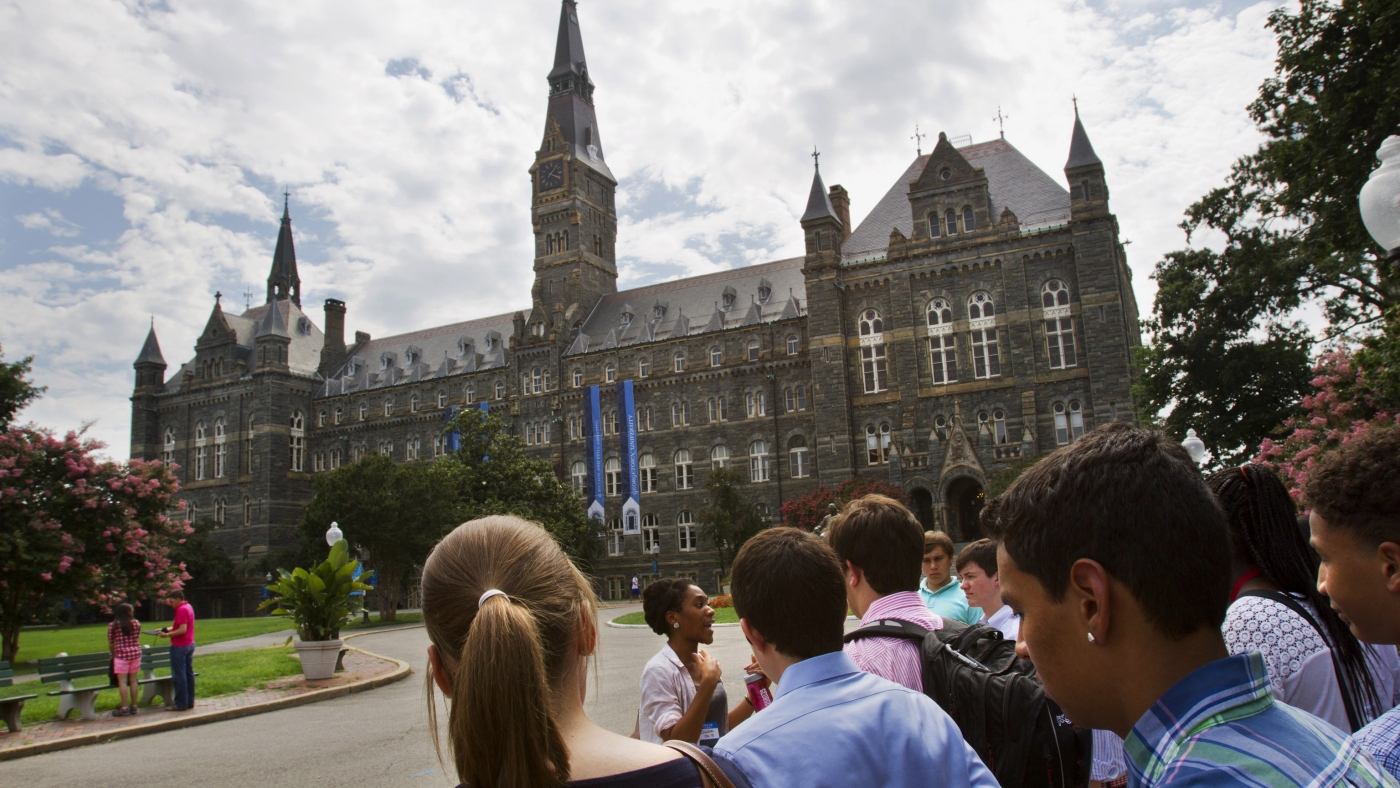Georgetown Scholar’s Deportation Halted Amid Free Speech Concerns
In a significant legal decision, a federal judge has temporarily blocked the deportation of Badar Khan Suri, a visiting scholar at Georgetown University. This decision comes after Suri, an Indian national, was detained by officials under the Trump Administration’s immigration policies, sparking a heated debate about free speech on college campuses in the United States.
U.S. District Judge Patricia Tolliver Giles issued an order preventing Suri’s removal from the country, highlighting the contentious nature of his case, which revolves around accusations of spreading Hamas propaganda. Suri’s attorney, Hassan Ahmad, argues that these accusations stem from Suri’s social media activity and his wife’s outspoken views on the Israeli-Palestinian conflict.
“Dr. Suri is an academic, not an activist,” said Ahmad. “But he spoke out on social media about his views on the Israel-Gaza war. Even more so, his wife is an outspoken critic of the Israeli government and the violence it has perpetrated against Palestinians.”
According to court documents, Suri has no criminal record and holds a visa as a visiting scholar, while his wife is a U.S. citizen. The defense claims that Suri’s detention is a violation of his free speech and due process rights, as authorities have yet to provide evidence of any criminal activity.
Homeland Security officials, however, have accused Suri of promoting antisemitism and determined him deportable. This decision was met with public outcry, including from Nader Hashemi, a professor at Georgetown, who described Suri as focused on teaching and research concerning the Middle East and South Asia.
Suri’s arrest, which occurred outside his Virginia home, involved masked agents who allegedly refused to explain the basis of the arrest to his family. His wife, Mapheze Saleh, expressed fear for her family’s safety, stating, “I feel completely unsafe and can’t stop looking out the door, terrified that someone else will come and take me and the children away as well.”
The situation has drawn attention from various quarters, including Democratic U.S. Rep. Don Beyer, who criticized the detention as illegal and a violation of Suri’s constitutional rights.
This case is part of a broader pattern of deportation efforts under the Trump Administration targeting individuals perceived as critical of U.S. policies on Israel. Similar cases include the detention of Columbia University student Mahmoud Khalil and the deportation of Dr. Rasha Alawieh, highlighting the ongoing tension between immigration enforcement and free speech rights.
As Suri remains in detention at a facility in Louisiana, his legal team continues to seek his release and the cessation of deportation proceedings. Georgetown University, meanwhile, has voiced support for Suri, underscoring the importance of free inquiry and debate within academic communities.
The university stated that Suri was “duly granted a visa to enter the United States to continue his doctoral research on peacebuilding in Iraq and Afghanistan,” and emphasized the expectation for a fair adjudication of his case.
To learn more about similar cases, visit NPR’s coverage on deportations.
This article was originally written by www.npr.org





